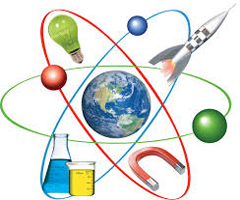Course DetailsHome / Courses Details
Science
Science is divided into various branches, including:
-
Physical Sciences: These disciplines focus on the study of non-living systems and phenomena. Examples include physics (the study of matter, energy, and their interactions), chemistry (the study of substances, their properties, and reactions), and astronomy (the study of celestial objects and phenomena).
-
Life Sciences: Also known as biological sciences, these disciplines focus on the study of living organisms and their interactions with each other and their environments. Examples include biology (the study of living organisms), botany (the study of plants), zoology (the study of animals), and ecology (the study of ecosystems and environmental interactions).
-
Earth Sciences: These disciplines focus on the study of the Earth and its various processes. Examples include geology (the study of the Earth's structure, composition, and history), meteorology (the study of the atmosphere and weather), oceanography (the study of the oceans), and environmental science (the study of the environment and human impacts on it).
-
Social Sciences: While distinct from the natural sciences, social sciences apply scientific methods to study human behavior and society. Examples include psychology (the study of the mind and behavior), sociology (the study of society and social interactions), anthropology (the study of human cultures and societies), and economics (the study of production, distribution, and consumption of goods and services).
Science is characterized by its reliance on empirical evidence, testable hypotheses, and peer-reviewed research. It is a collaborative endeavor, with scientists around the world contributing to a collective body of knowledge that continues to evolve over time. The applications of science are vast, ranging from technological innovations and medical advancements to environmental conservation and policy-making.

The scientific method is a systematic approach used by scientists to investigate natural phenomena, acquire new knowledge, and refine existing understanding. It typically involves several key steps: observation, hypothesis formation, experimentation, data analysis, and conclusion drawing. Scientists begin by making observations or asking questions about the world around them. Based on these observations, they formulate hypotheses, which are testable explanations for the observed phenomena. Experimentation is then conducted to test these hypotheses under controlled conditions, often involving the manipulation of variables and comparison of outcomes. Data collected during experiments are analyzed to determine whether they support or refute the hypotheses. From this analysis, conclusions are drawn, and the results are communicated through scientific publications or presentations. Importantly, the scientific method is iterative, with new observations leading to revised hypotheses and further experimentation. This process of inquiry and discovery lies at the heart of scientific research and drives the advancement of knowledge across all fields of science.
Environmental science is a critical field of study that addresses the complex interactions between humans and the natural world. It seeks to understand the impacts of human activities on the environment, including pollution, habitat destruction, climate change, and biodiversity loss. By applying scientific principles and methodologies, environmental scientists assess the health of ecosystems, identify environmental risks, and develop strategies for sustainable resource management and conservation. The insights gained from environmental science are crucial for informing policy decisions, shaping environmental regulations, and fostering sustainable development practices. Moreover, environmental science plays a vital role in raising awareness about environmental issues and promoting environmental stewardship among individuals, communities, and governments worldwide. In an era of increasing environmental challenges, the interdisciplinary nature of environmental science offers valuable insights and solutions for safeguarding the planet and ensuring a sustainable future for generations to come.
Science is a systematic enterprise that builds and organizes knowledge in the form of testable explanations and predictions about the universe. It encompasses a wide range of disciplines, each focusing on different aspects of the natural world. Here are some key points about science:
-
Empirical Approach: Science relies on empirical evidence obtained through observation and experimentation. It seeks to understand the world through systematic observation and experimentation rather than through intuition or speculation.
-
The Scientific Method: The scientific method is a systematic approach to inquiry involving observation, hypothesis formation, experimentation, and analysis. It provides a framework for testing hypotheses and refining our understanding of the natural world.
-
Objective and Falsifiable: Scientific knowledge is objective and subject to revision based on new evidence. Scientific theories and hypotheses must be falsifiable, meaning they can be tested and potentially disproven through observation or experimentation.
-
Interdisciplinary Nature: Science is highly interdisciplinary, with different fields often collaborating to tackle complex problems. Major branches of science include physics, chemistry, biology, earth science, and social science, each with its own methods and techniques.
-
Technological Advances: Science drives technological innovation and vice versa. Advances in science have led to the development of new technologies that have revolutionized society, from electricity and the internet to medical treatments and space exploration.
-
Global Collaboration: Scientific research is often conducted through international collaboration, with scientists from around the world sharing knowledge and resources to address global challenges such as climate change, disease prevention, and food security.
-
Ethical Considerations: Science raises ethical questions about the responsible use of knowledge and technology. Ethical considerations are important in areas such as biomedical research, genetic engineering, and artificial intelligence.
-
Communication and Education: Effective communication of scientific findings is essential for informing public policy, promoting scientific literacy, and fostering public understanding of science. Science education plays a crucial role in equipping individuals with the knowledge and skills to critically evaluate scientific information and engage in informed decision-making.
Overall, science plays a central role in understanding the world around us, driving innovation, and addressing pressing societal challenges. If you have any specific questions about science or would like to explore a particular topic further, feel free to ask!
Science is a systematic enterprise that builds and organizes knowledge in the form of testable explanations and predictions about the universe. It encompasses a wide range of disciplines, each focusing on different aspects of the natural world. Here are some key points about science:
-
Empirical Approach: Science relies on empirical evidence obtained through observation and experimentation. It seeks to understand the world through systematic observation and experimentation rather than through intuition or speculation.
-
The Scientific Method: The scientific method is a systematic approach to inquiry involving observation, hypothesis formation, experimentation, and analysis. It provides a framework for testing hypotheses and refining our understanding of the natural world.
-
Objective and Falsifiable: Scientific knowledge is objective and subject to revision based on new evidence. Scientific theories and hypotheses must be falsifiable, meaning they can be tested and potentially disproven through observation or experimentation.
-
Interdisciplinary Nature: Science is highly interdisciplinary, with different fields often collaborating to tackle complex problems. Major branches of science include physics, chemistry, biology, earth science, and social science, each with its own methods and techniques.
-
Technological Advances: Science drives technological innovation and vice versa. Advances in science have led to the development of new technologies that have revolutionized society, from electricity and the internet to medical treatments and space exploration.
-
Global Collaboration: Scientific research is often conducted through international collaboration, with scientists from around the world sharing knowledge and resources to address global challenges such as climate change, disease prevention, and food security.
-
Ethical Considerations: Science raises ethical questions about the responsible use of knowledge and technology. Ethical considerations are important in areas such as biomedical research, genetic engineering, and artificial intelligence.
